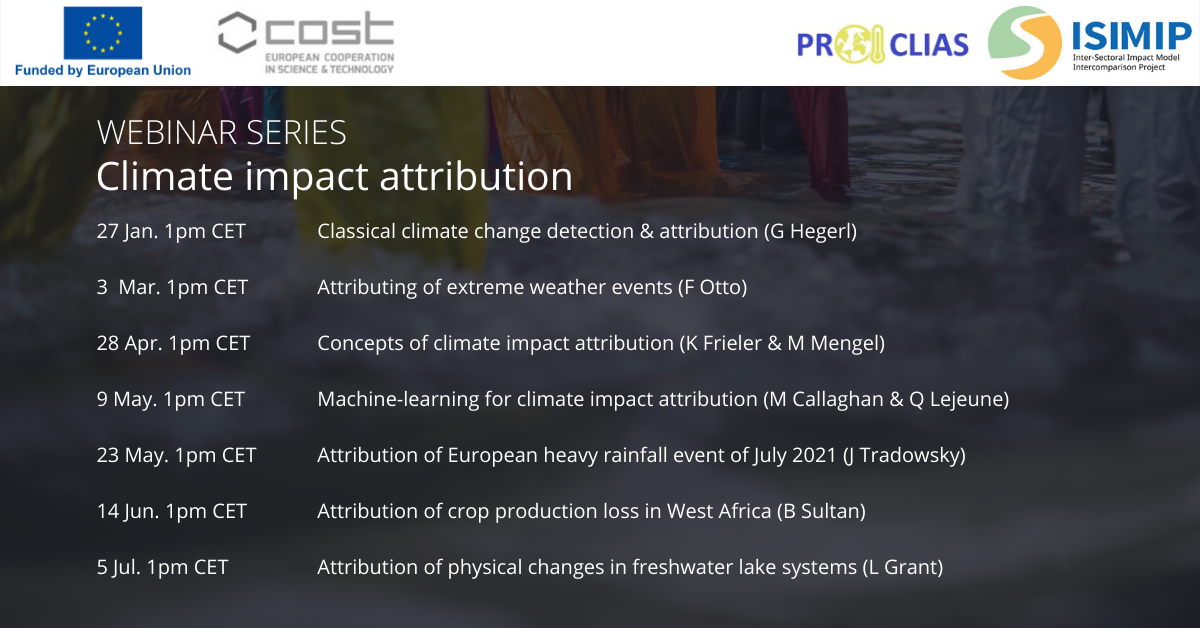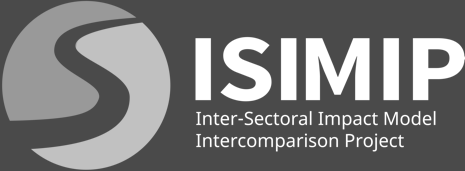Abstract:
Detecting and monitoring climate change impacts becomes ever more critical as we move deeper into the climate crisis. The recent Nobel Prize to Klaus Hasselmann, who developed the theoretical foundation for the detection and attribution of anthropogenic climate change, underlines the timeliness of this line of research. Building on this early work, attribution focusing on the physical climate system is a well-developed discipline. By contrast, the attribution of the impacts of anthropogenic climate change on natural and human systems, where non-climatic drivers play an important role, is a much less developed and less formalized field of research.
This series of 7 online lectures aims to explore this emerging field of climate impact attribution. In the first part of the series, participants will be introduced to the basic concepts of classical climate trend and event attribution, and the conceptual framing of climate impact attribution. The second part of the series will feature selected case studies, exemplifying the specific challenges of impact attribution and showing most recent methodological developments. As such the series can serve as a training to climate impact scientists who have not previously worked on formal detection and attribution, as well as a platform to intensify exchanges between the currently still quite separated attribution communities represented in the IPCC Working Groups I and II.

